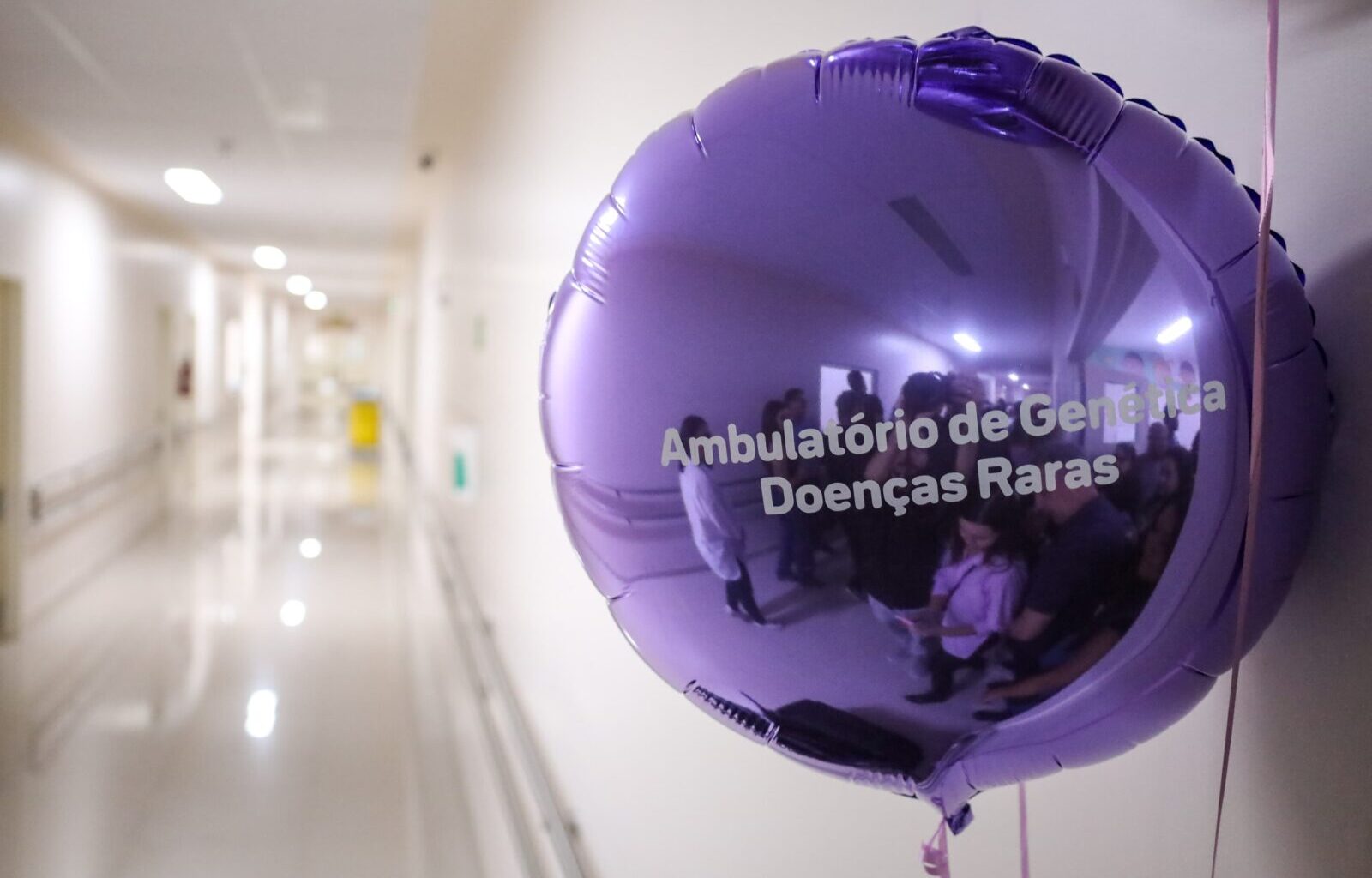As part of the celebrations commemorating Maringá’s 78th anniversary, the municipal administration, the Government of Paraná, the Federal Government and the Álvaro Bahia League Against Infant Mortality inaugurated this Thursday, the 15th, the Medical Genetics and Rare Diseases Outpatient Clinic at the Children’s Hospital.
The new service will provide diagnostic support to patients with rare diseases through specialized medical consultations, specific genetic tests, and advanced therapies.
With the support of the municipality, the new wing was delivered more than three years ahead of schedule. The outpatient clinic is the first step towards qualifying the Maringá Children’s Hospital as a reference service for rare diseases. The facility will begin providing care on Tuesday, the 20th.
“In this space, we will save children. We are not anticipating the delivery of a laboratory by three years, but anticipating the possibility of diagnosis and adequate treatment for our children. The laboratory is material, but this delivery represents the guarantee of the opportunity for a cure three years earlier for these children,” said Mayor Silvio Barros (PP).
Health Secretary Antônio Carlos Nardi recalled that the city and the Álvaro Bahia League also brought forward the first 10 ICU beds at the Children’s Hospital and the pediatric surgery marathons at the unit, actions that reinforce the commitment to ensuring fast, quality care to save lives. “These are deliveries, like today’s, that represent the priority placed by the city to advance in the health area.”
Authorities celebrate the arrival of the Medical Genetics and Rare Diseases Outpatient Clinic Photo: Rafael Macri
The superintendent of the Álvaro Bahia League Against Infant Mortality, Carlos Emanuel Melo, reinforced the partnership with the city. “Count on the League, which is now a member of Maringá, so that this is just the beginning. May we reap many rewards and support all the children who need us,” he said.
For the president of the City Council, Councilwoman Majô, the outpatient clinic is a great achievement for patients and their families, who will no longer need to travel for treatment. “Having a genetics outpatient clinic here in Maringá, close to the people of Maringá, will help with the treatment and support of these families. With a competent team, the clinic will bring more comfort to all families in Maringá and the surrounding region.”
State Representative Maria Victoria, who has been working for over a decade to defend patients and families with rare diseases, highlighted the work developed by the Children’s Hospital. She especially thanked geneticist Arthur Périco, who will coordinate the new service, and highlighted the professionals’ mission to provide “quality treatment and cure, ensuring quality of life for many families,” she said. For Federal Representative Ricardo Barros, the outpatient clinic represents a union of efforts in favor of the health and care of children with rare diseases. “It is a space that will offer treatment and together we can alleviate the suffering of many children,” he said.
Specialized service
The Medical Genetics and Rare Diseases Outpatient Clinic will provide consultations with a geneticist trained to treat rare diseases, the majority of which are genetic (more than 70%). Initially, approximately 25 patients per month will be treated, referred by the appointment center. This capacity will be gradually expanded, depending on demand and the available structure.
In addition to the medical evaluation – which includes a thorough anamnesis and detailed physical examination – the hospital will offer complementary genetic tests, with the aim of deepening the diagnostic investigation and enabling the definition of the diagnosis in cases where it is not possible to establish it clinically.
According to Arthur Périco, a geneticist at the Children’s Hospital who coordinates the new service, many patients face a long battle until a diagnosis. “The main focus is to shorten the patient’s journey in the search for a diagnosis, bringing greater clarity to those children with symptoms suggestive of rare diseases,” he said.
The outpatient clinic will be supported by a day hospital structure that has been enabled to administer high-cost medications provided by the SUS and intended for the treatment of rare genetic conditions that are diagnosed.
“This is just the first step towards a broader goal: qualifying the Maringá Children’s Hospital as a Reference Service for Rare Diseases. This process will be conducted throughout this year, with a view to certification by the Ministry of Health, which will allow for the capture of additional resources and the consolidation of an even more robust and effective line of care for people living with rare genetic diseases,” concluded the outpatient clinic coordinator.
